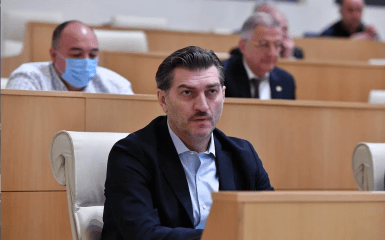Immediately after his inauguration on December 29, Mikhail Kavelashvili signed the laws adopted by the Georgian Parliament in the third reading on December 13. He is not recognized by a significant number of international partners, the current head of Georgia, Salome Zurabishvili, and the opposition.
Points of attention
- The new president of Georgia has signed a number of laws regulating the ban on the use of pyrotechnics at protests and other restrictions.
- The signed laws have caused outrage among international partners and the opposition, who consider them repressive and undemocratic.
- Former Georgian President Salome Zurabishvili called the new legislation a wave of repression and restrictions on freedom.
- The signing of the laws by the president, who was most likely elected by a pro-Russian parliament, caused mass protests in the country.
- The rejection of EU accession negotiations by 2028 and reforms of Georgia's electoral system have exacerbated the political crisis and conflicts with the opposition.
What is known about the laws signed by pro-Russian Kavelashvili?
As noted, the parliament, controlled by the Georgian Dream party, has passed laws that human rights activists call "repressive," "restrictive," and "undemocratic."
Among the signed laws:
Changes to the Code of Administrative Offenses: ban on covering the face, use of pyrotechnics at protests, new restrictions;
Amendments to the Criminal Code: regulation of the storage and use of pyrotechnics;
Amendments to the law on assemblies and demonstrations;
Law on Militia: simplification of employment in the Ministry of Internal Affairs for certain categories of employees;
Changes to the law on state security: Salome Zurabishvili will no longer have state security;
Amendments to the electoral code: increasing the share of the majoritarian element in local elections;
Amendments to the Civil Service Law: Easing dismissals for political reasons, according to human rights activists.
Also, from December 30, the following regulations came into force:
A fine of 2,000 GEL for using pyrotechnics or lasers at protests;
A fine of 2,000 GEL for covering the face with a mask or other means;
A fine of 1,000 GEL for blocking the road with vehicles, plus a one-year suspension of your driver's license;
A fine of 1,000 GEL for placing posters without permission (instead of 50 GEL previously);
Increasing fines for repeated violations to 2,000–3,000 GEL;
A fine of 2,000 GEL for illegally wearing a Ministry of Internal Affairs uniform or similar clothing;
A fine of 5,000 GEL for participating in a roadblock (previously 500), and 15,000 GEL for organizing one (previously 5,000).
Former Georgian President Salome Zurabishvili called the signed laws a new wave of repression.
"This is another restriction on freedom of assembly and the legalization of purges in state structures," Zurabishvili said.
What is known about the scandalous presidential election in Georgia?
In particular, the new “president” was elected by members of the electoral college, the absolute majority of whom were representatives of the pro-government “Georgian Dream” party.
The former football player, a representative of the "People's Power" party, was the only candidate.
Georgian Dream announced that the inauguration of the new president will take place on December 29 of this year.
Political forces that entered parliament following the election results but refused their parliamentary mandates made a joint appeal to the EU.
The letter is addressed to the High Representative of the European Union for Foreign Affairs and Security Policy, Kai Kallas, and to the foreign ministers of the EU member states.
The appeal states that Georgia is facing an unprecedented political crisis that requires immediate action from the European Union.
It is noted that the election of Mikhail Kavelashvili as the sixth president of Georgia worsens an already difficult situation. The authors of the appeal recall that Kavelashvili was one of the initiators of the law on foreign agents and is often engaged in active anti-Western propaganda. And after being elected by the "self-proclaimed and illegitimate parliament", he will allegedly have neither independence nor legitimacy.
On November 28, 2024, Georgian Prime Minister Irakli Kobakhidze announced that Georgia was abandoning negotiations on joining the EU. until 2028. After that, large-scale protests began in the country, which were dispersed by security forces using water cannons and tear gas.




